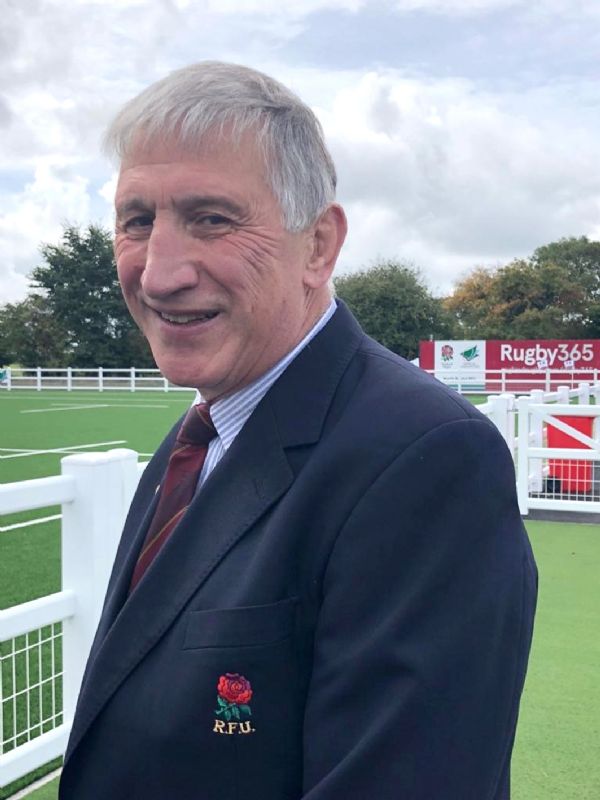- Home
- News, Articles & Reviews
- All Sport
- Cricket
- Cycling
- Football
- Golf
- Horse Racing
- Rugby Union
- Angling
- Archery
- Athletics
- Basketball
- Bowls
- Boxing
- Croquet
- Dance
- Darts
- Diving
- Duathlon
- Equestrian
- General
- Gymnastics
- Hockey
- Martial Arts
- Modern Pentathlon
- Motorsport
- Mountain Biking
- Netball
- Padel
- Parasport
- Polo
- Powerboating
- Powerlifting
- Rowing
- Rugby League
- Running
- Scuba Diving
- Shooting
- Skiing
- Skittles
- Snooker
- Squash
- Swimming
- Table Tennis
- Tennis
- Triathlon
- Tug of War
- Walking
- Walking Football
- Water Polo
- Weightlifting
- Wheelchair Tennis
-
Sport
- All Sport
- Cricket
- Cycling
- Football
- Golf
- Horse Racing
- Rugby Union
- Angling
- Archery
- Athletics
- Basketball
- Bowls
- Boxing
- Croquet
- Dance
- Darts
- Diving
- Duathlon
- Equestrian
- General
- Gymnastics
- Hockey
- Martial Arts
- Modern Pentathlon
- Motorsport
- Mountain Biking
- Netball
- Padel
- Parasport
- Polo
- Powerboating
- Powerlifting
- Rowing
- Rugby League
- Running
- Scuba Diving
- Shooting
- Skiing
- Skittles
- Snooker
- Squash
- Swimming
- Table Tennis
- Tennis
- Triathlon
- Tug of War
- Walking
- Walking Football
- Water Polo
- Weightlifting
- Wheelchair Tennis
We are hiring! Please click here to join our growing magazine delivery team in Gloucestershire!
Areas
Sport
Archive

Ex-Leicester player Nigel Gillingham is looking forward to taking over as president of the Rugby Football Union in 2021
Stroud District > Sport > Rugby Union
Author: Roger Jackson, Posted: Tuesday, 26th November 2019, 09:00
As rugby résumés go, Nigel Gillingham’s is pretty impressive.
The one-time Leicester second row – he played for the Tigers when they were the undisputed kings of the jungle back in the 1970s – is these days playing as big a role on the administrative side of the game as he did all those years ago as a player.
So much so that in less than two years’ time he will take over as president of the Rugby Football Union, a position that is currently held by England and British Lions great Peter Wheeler.
It’s primarily an ambassadorial role, but as one of the faces of the RFU it’s clearly a very important position and one for which Gillingham, a former Royal Air Force man, is obviously very well suited.
Gillingham, who lives in Stroud, is currently the RFU’s junior vice-president and will become senior vice-president next year before taking on the top job on 1st August 2021.
He’s also a hardworking member of Gloucestershire’s RFU – he’s their RFU representative – and on Saturday afternoons is a regular spectator at games up and down the county.
“I go anywhere from Norton to Cinderford, Barton Hill to Frampton Cottrell, and from Cheltenham Saracens to Spartans,” said the 66-year-old, who is also a social member at Stroud.
And he still very much enjoys the grassroots game even though it is very different to when he was starting out all those years ago.
“Yes it is,” he admitted. “What players want today is not the same as what they wanted years ago.
“Back then they were happy to play week in, week out – it wasn’t as physical in those days – and your social life revolved around the rugby club.
“But work patterns have changed and people want different things and when you’re organising a team that’s when things become more difficult.
“In saying that the number of adult players playing the game is the same as a few years ago, it’s just that they don’t play as often.”
And while few, if any, clubs are running the number of men’s teams that they did at the start of the century, the great game of rugby is still hugely popular in this country.
“The female game is expanding quite rapidly,” added Gillingham, “and the age grade game has always been healthy.”
Gillingham knows what he is talking about, of course, having fallen in love with the game way back in the Swinging Sixties.
Born in Guildford in Surrey, he learned his rugby at RGS Guildford and was obviously pretty good at it because he went on to be selected for England Schools.
He spent a year playing for Richmond before attending Loughborough Colleges where he captained the team in his third year, leading their last side to win the Middlesex Sevens in 1976.
While at Loughborough, Gillingham, who could also play in the back row, played for England Students before joining Leicester.
And as choosing clubs to play for go, joining Leicester was a pretty good move because as well as the aforementioned Peter Wheeler, they were a team packed with star-studded names who dominated English rugby for a decade back in the 70s.
“We had a fantastic side,” said Gillingham. “Peter Wheeler was our captain and hooker, and we also had Garry Adey and Robin Cowling in the forwards.
“And our back line was to die for. Nick Youngs, the dad of England’s Ben, was scrum-half and then we had Les Cusworth, Paul Dodge, Clive Woodward and Dusty Hare.”
Gillingham played in the 1980 John Player Cup final winning side which defeated London Irish 24-9 at Twickenham. And while that was an obvious highlight he has many other great memories of his time at Welford Road and is still a Leicester supporter today.
“I thoroughly enjoyed my time there,” said Gillingham who was commissioned into the RAF after leaving Loughborough. “We have a past players’ association and we have three or four get-togethers every year.
“I did enjoy working and balancing my job against playing rugby. I think because the game was amateur lots of rugby players brought something different to the game.
“Nowadays all the elite players are professional so they haven’t got what we had, they’re immersed in rugby all the time.
“I’m not sure I’d have wanted to be full time. Certainly the game at the top level is very different today.
“The players now are all athletes, the game is all about winning the breakdown and the confrontations. It’s brutal in terms of injuries even though we’re very careful about player welfare.
“In my day it was all about exploiting the space.”
And that type of game certainly suited Gillingham’s style of play.
“Because I could also play back row I was pretty mobile,” he said. “I would say I could scrummage and I was a reasonable lineout jumper.”
Not that the lineout was anything like as sophisticated as it is today.
“No it wasn’t,” laughed Gillingham. “We didn’t have a number one jumper at Leicester so if the lineout was on one side of the pitch the ball was thrown to the front and if we were on the opposite side it went to the middle.
“We had a code for throwing it to the back of the lineout but that consisted of a just a few jumbled up numbers and letters!”
And if that sounds old fashioned, those were the days when Leicester’s players also had letters rather than numbers on the back of their shirts.
“I had the letter D,” recalled Gillingham, who captained the RAF and the Combined Services against Graham Mourie’s touring All Blacks in 1978 and played for the Midland Counties against various touring sides.
He was also capped by England at under-23 level but never won a full cap in an era when Bill Beaumont, Nigel Horton and Maurice Colclough were among the top second rows and the likes of Andy Ripley, Roger Uttley, Peter Dixon and Tony Neary played in the back row.
“I think I was pretty close in 1980,” he said, “I think I would have made the England trial.”
Sadly that never happened. A serious knee injury sustained against Wasps before the trial meant he was never able to play to the same level again and he retired in 1983.
“It was a double tackle and I snapped my cruciate ligament,” said Gillingham.
He says he now has “a very arthritic left knee” but although the injury cost him three or four years at the top he insists he had “a great run”.
He went on to coach in the RAF before getting involved in the administrative side of the game, a journey that has taken him right to the top of the sport.
And he says that when he does take over as president of the RFU he will be a very proud man.
“It’s a fantastic honour,” he said. “When I was playing I didn’t know anything about the RFU!
“It will be a great privilege to represent the RFU, I feel very proud.”
Gillingham, who was awarded an OBE for services to RAF charities and RAF rugby in 2001, moved to Stroud in 2000.
He’d previously been living at many different RAF stations across the country and abroad, but knew this area because his daughters were boarders at Wycliffe College in Stonehouse and he’d spent three years based at RAF Innsworth.
It wasn’t until nine years after his move to this part of the world that he got involved with the Gloucestershire RFU, however, and it will come as no surprise to anyone involved with rugby around the county that it was Russ Hillier, the ever-popular president of Stroud Rugby Club, who brought him into the fold.
“I’d known Russ since before I’d left the RAF,” said Gillingham. “He invited me to a county championship game and the next thing I know I’m on the Gloucestershire RFU!”
Gillingham was elected as Gloucestershire’s RFU representative in 2012, becoming only the second person to take on the role for two different constituent bodies after serving in a similar position for the RAF.
He is hugely grateful for the support he has received from the Gloucestershire RFU.
“I’m not a Gloucestershire lad but they’ve accepted me and I’m equally proud to be representing them,” he said.
Gillingham’s first job in the top role – he’ll be president for a year before serving as immediate past president for a further year – will see him heading to New Zealand for the Women’s World Cup in the English summer of 2021.
As jobs go that sounds pretty good, but rest assured the RFU could not have a better man representing them than Nigel Gillingham.Copyright © 2024 The Local Answer Limited.
Unauthorized use and/or duplication of this material without express and written permission from this site's author and/or owner is strictly prohibited. Excerpts and links may be used, provided that full and clear credit is given to The Local Answer Limited and thelocalanswer.co.uk with appropriate and specific direction to the original content.More articles you may be interested in...


© 2024 The Local Answer Limited - Registered in England and Wales - Company No. 06929408
Unit H, Churchill Industrial Estate, Churchill Road, Leckhampton, Cheltenham, GL53 7EG - VAT Registration No. 975613000You are leaving the TLA website...
You are now leaving the TLA website and are going to a website that is not operated by us. The Local Answer are not responsible for the content or availability of linked sites, and cannot accept liability if the linked site has been compromised and contains unsuitable images or other content. If you wish to proceed, please click the "Continue" button below:




